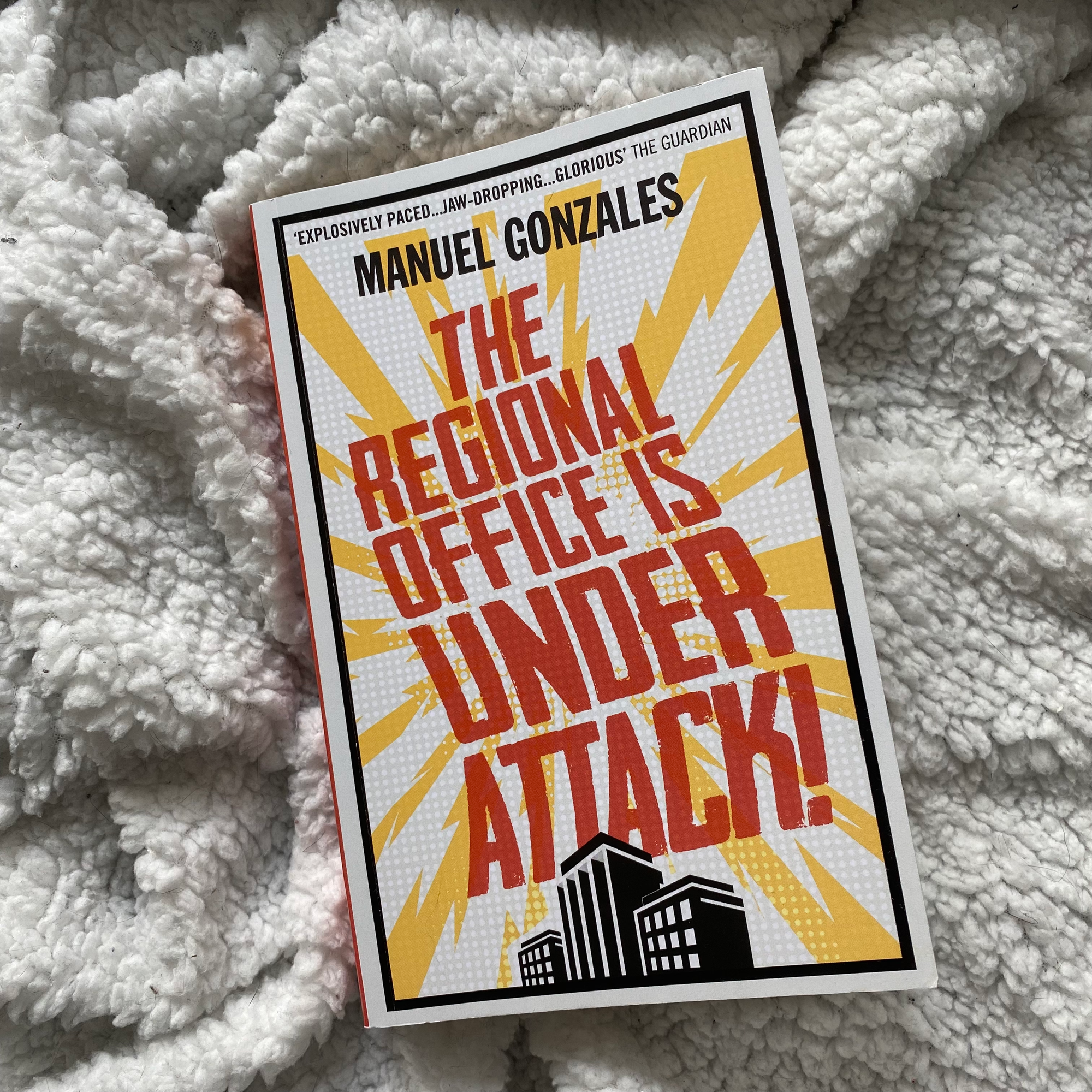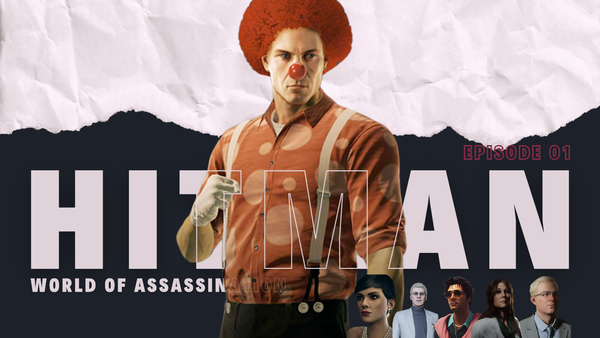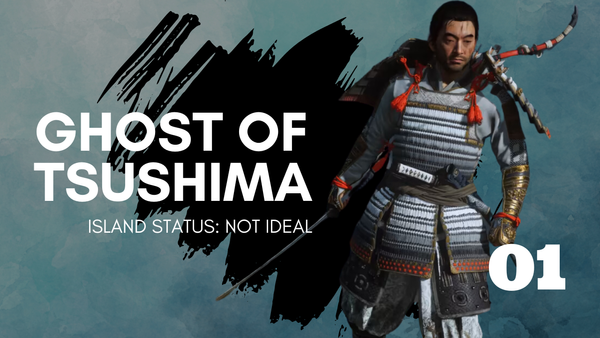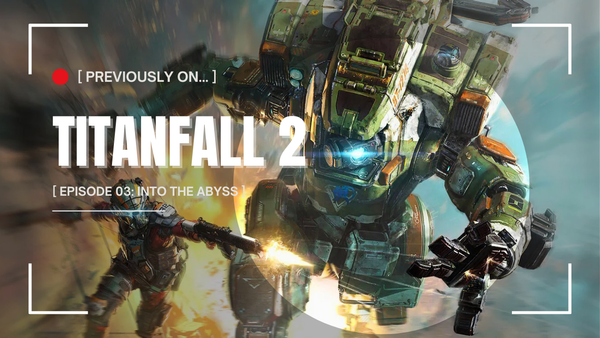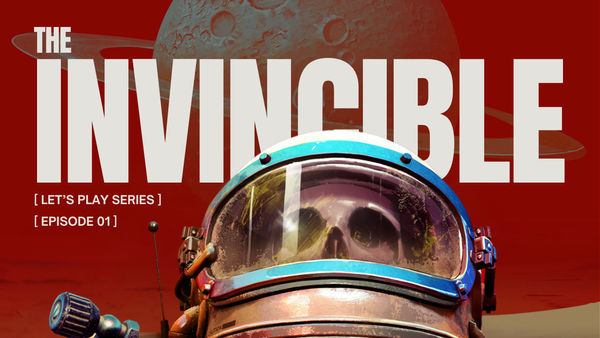The Regional Office Is Under Attack — Manuel Gonzales
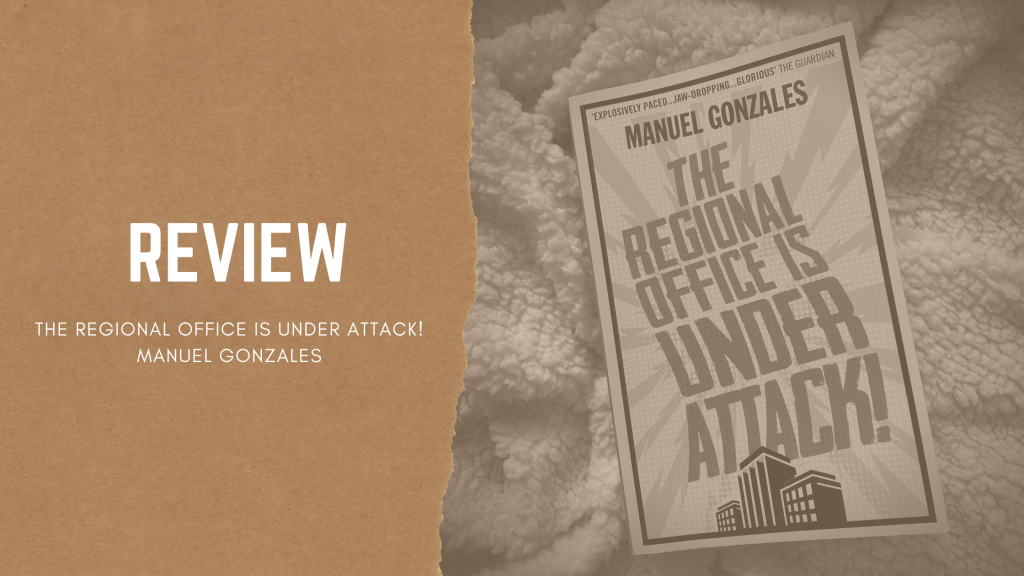
The Regional Office Is Under Attack is about revenge, from cover to cover. One stroke of vengeance begets the other, and when it ends, there’s a sense of satisfaction, or there isn’t — it’s up to the reader which side they’re on. What’s definitely there is a sense of finality, of having just gone on a fantastical ride that hops and skips through time, touching on so many lives and histories as it goes, but never falling short of enabling you to care. It’s a phenomenal novel, and in this review, I’ll talk about my favourite parts of it. (I’ll insert a big spoiler warning before discussing the ending, so you guys can skip!)
The story structure is quite fragmented at the beginning, jumping between past and present. Each jump back lends context to what’s happening in the present, and it’s definitely the smarter move to have those bits told in flashbacks rather than paraphrase, because that would get tedious real fast. The time jumps did take me out of the action at first because the chapters are really quite short — it takes some getting used to, and this way of storytelling won’t work for everyone. But I found sticking with it really paid off especially in the second and third act of the novel. The chapters do get longer and the jumps less frequent.
It’s also, of course, a great page-turning technique: I was constantly impatient to get back to what was happening in the present, especially during the attack on the Regional Office (is that a spoiler yet? 😀); led by Rose, one of our protagonist. The youngest, she was recruited by Henry and Emma, the erstwhile antagonists (again, depends whose side you’re on) when she was barely 16, and at 17, she’s an assassin in charge of a platoon of mercs ready to do some damage.
And damage, indeed, they do.
But they didn’t bet on Sarah. Office liaison, badass, mechanical-arm Sarah. Sarah who arrives too late to warn them.
The chapters are interspersed with lore, essentially: excerpts from secondary literature on the history of the Regional Office, providing more context and some insight to the reader that the characters might not (yet) have, might never obtain. This creates a speck of delicious distance between the POV characters and the reader, but not enough to take you out of the moment; even when you know something they don’t.
The writing is great! The action sequences especially are tight and enjoyable, and streamlined by “This is how it would go” montages, if you will, hustling through a quick run-down of what the character wants to do — and then sometimes the plan works, sometimes it doesn’t. This really helps to tighten those sequences — though the drawn-out, detailed moment-to-moment combat is great as well — and more than anything, it lets the reader in on how that character thinks. Their tactics, their foresight, their style. And more often than not, their weaknesses.
(There is some ableist language in the writing, most often the term ‘spaz,’ so if that’s a trigger for you, be aware.)
What I really liked about the way the story is told and the characters are introduced and presented, there are no clearly or neatly defined heroes and villains. You feel the satisfaction in everyone’s revenge; and each character’s revenge feels grounded in who they are, who they were made to be by the Regional Office. When I wrote the intro, I had to think of The Last Of Us Part II. What I personally found dreary about TLOU II is that it leaves no room for interpretation. It drives home the point that there is no satisfaction, no being made whole, in vengeance with all the impact and subtlety of a planet-sized sledgehammer. But to achieve that, at key points, it takes away player choice. And the message is pretty clear that if you’re not on board with the narrative direction, you’re on the wrong side of things. So what, by contrast, I really liked about this novel is that it does not take sides. It presents its story and plot to you, and it leaves it entirely up to you whether you’re happy with the ending, or any of it.
In The Regional Office Is Under Attack, the dynamic and imperative of revenge is played with a lot more nuance. Perhaps it hits different for me because it’s not a video game and the novel isn’t making me press triangle to brutally murder yet another human in my way; and it doesn’t look down at me and say, ‘Don’t you see, you were the monster all along.’ It’s still a cycle of revenge, and you can call it pointless. You know, this used to be civilised, you’d hit a guy, he’d whack you, done. But in the Regional Office, people aren’t just people. They’re Operatives. And when one of them gets screwed, she hatches a decade-long plan to get her own back. And then, when Sarah — who was bound to the Regional Office, baited and hooked, by the promise of revenge — learns the truth, she finally fulfils her purpose.
Even though I’m a smidge sad about how it plays out in the end, I’m not about to say it makes for a bad or worse ending, or that the author shouldn’t have done that; precisely because I can just as easily see readers rooting for exactly that outcome. So I am happy with the story exactly as it is.
Warning! Spoilers beyond this point.
Mr Niles bound Sarah to him through revenge, by promising her that she could take out the people who allegedly kidnapped her mother and who were responsible for her death. That was a lie. But when Sarah finds out the truth, and then those same people do kill her mother, she can finally do that mission right.
Emma and Henry betrayed the Regional Office after it betrayed them, and they get away with it. They burn it all down and they walk away. Rose runs, along with the others who barely made it out of that mess alive. But in the end, Sarah finds them all. Sarah who lost more than any of them, and who would have her own reasons to get her exact her revenge on Oyemi and Mr Niles. But she didn’t get to; and more than that, Emma and Henry attacked her family, the organisation she’s devoted her entire adult life to. Her purpose. And for that, they have to die; and in the end, I was still a little sad that she got to them. I completely understood what drove Sarah to hunt them down, but I understood them, too.
The novel ends the way it begins: with Rose and Henry. I appreciate that the novel mirrors its beginning that way, and I love the ambiguity this affords Emma’s fate. She’s the most elusive character, I found, in the entire story, and you may call that a failing in fleshing her out, but what can I say? I enjoy a mysterious woman with magic gifts.
